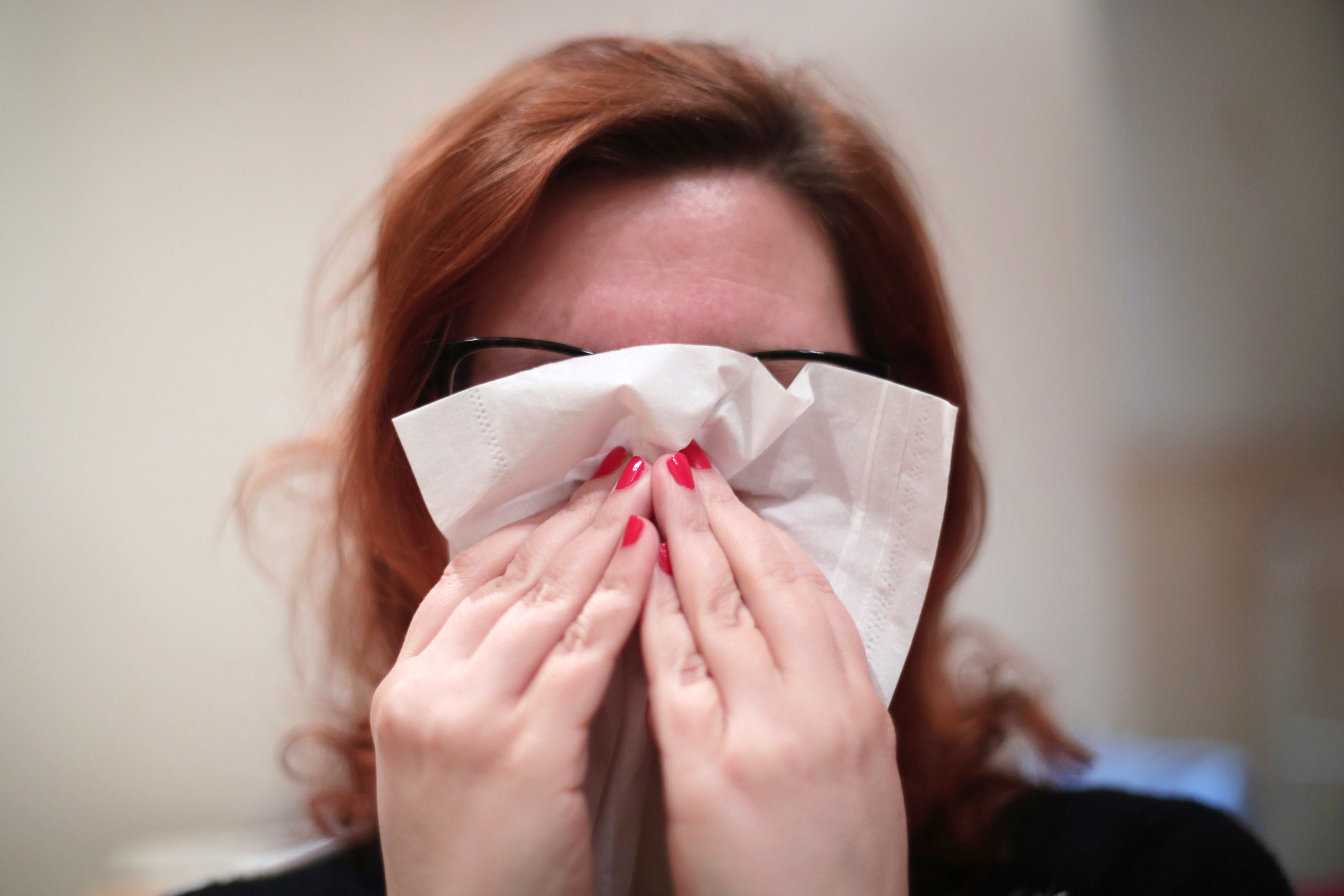People seek hay fever advice once every three seconds, says NHS England
It comes as the pollen count was ‘very high’ in many parts of the country.

People sought advice for hay fever symptoms once every three seconds on Sunday, health officials have said.
It comes as the Met Office said that the pollen count was expected to be “very high” in most of England and Wales on Tuesday.
Hay fever is usually at its worst between March and September when the pollen count is at its highest and the weather can be warm, windy and humid.
NHS England, which runs the NHS.uk website, said that there were 122,650 visits to the hay fever section of the website last week.
In the first week of May there were just 35,000 visits.
Sunday was the busiest day of the week, with 27,834 visits over 24 hours.
The site also saw surges on its specific antihistamine web pages.
“Many of us experience hay fever symptoms at this time of year and the nhs.uk hay fever advice page provides the latest medical advice to manage your symptoms, as well as giving guidance on when to get support from NHS services,” said Robert Cleary, NHS England’s content director for the NHS website.
Symptoms of hay fever can include: sneezing and coughing; a runny or blocked nose and itchy, red or watery eyes.
Bookmark popover
Removed from bookmarks